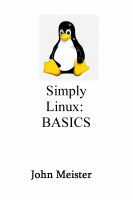the Philosophy of Linux (and UNIX )
the Philosophy of Linux (and UNIX )
The LINUX (and UNIX) Philosophy
The philosophy is a result of more than twenty years of software development and
has grown from the UNIX community instead of being enforced upon it. It is a
defacto-style of software development. The nine major tenets of the UNIX Philosophy are:
1. small is beautiful
2. make each program do one thing well
3. build a prototype as soon as possible
4. choose portability over efficiency
5. store numerical data in flat files
6. use software leverage to your advantage
7. use shell scripts to increase leverage and portability
8. avoid captive user interfaces
9. make every program a filter
The Ten Lesser Tenets
1. allow the user to tailor the environment
2. make operating system kernels small and lightweight
3. use lower case and keep it short
4. save trees
5. silence is golden
6. think parallel
7. the sum of the parts if greater than the whole
8. look for the ninety percent solution
9. worse is better
10. think hierarchically
FROM THE BOOKS:
The Unix Philosophy -- Mike Gancarz
Linux and the Unix Philosophy -- Mike Gancarz, Jon "Maddog" Hall
The UNIX Philosophy
From The UNIX Philosophy by Mike Gancarz. Operating systems embody the
philosophy of their creators.
* Mac/OS is visually based with all options presented to the user
* DOS attempts to create "a taste of the mainframe"
* DEC VMS assumes users fear the machine and should be given a
few powerful choices
The creators of Unix assumed that its users would be computer literate.
Little effort was placed into making it accessible to novices.
"If you can't understand it, then you don't belong here."
|

















